AWS launches next-gen GPU instances for machine learning
P4d adds Intel Cascade Lake CPUs and Nvidia GPUs for high-performance computing
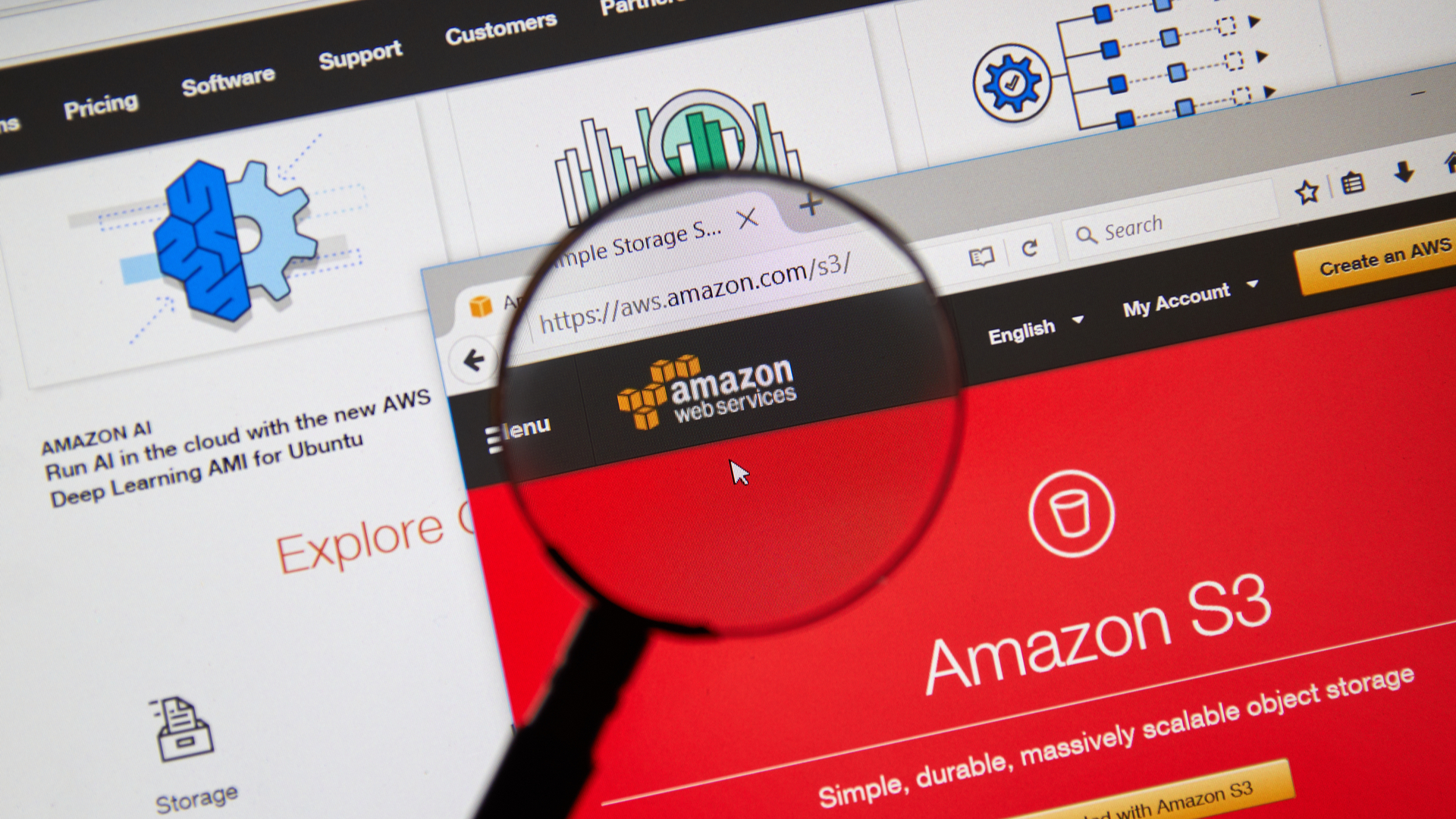

AWS has launched its latest GPU-equipped instances aimed at machine learning and high-performance computing (HPC) workloads.
Called P4d, the new instances come ten years the first set of GPU instances were launched. They feature Intel Cascade Lake processors and eight of Nvidia's A100 Tensor Core GPUs. These connect via NVLink with support for Nvidia GPUDirect and offer 2.5 PetaFLOPS of floating-point performance and 320GB of high-bandwidth GPU memory.
AWS claimed that the instances offer 2.5x the deep learning performance, and up to 60% lower cost to train when compared to P3 instances.
In addition, the P4 instances include 1.1TB of system memory and 8TB of NVME-based SSD storage with up to 16 gigabytes of read throughput per second. The instances can combine over 4,000 GPUs into an on-demand EC2 UltraCluster.
Among the use cases touted by AWS for these instances include supercomputer-scale machine learning and HPC workloads: natural language processing, object detection & classification, scene understanding, seismic analysis, weather forecasting, financial modelling, etc.
The P4 instances are available in one size (p4d.24xlarge) and can be launched in the US East (N.Virginia) and US West (Oregon) Regions with immediate effect.
Among the companies that have already been working with the P4 instances include Toyota Research Institute (TRI), GE Healthcare and Aon.
Get the ITPro daily newsletter
Sign up today and you will receive a free copy of our Future Focus 2025 report - the leading guidance on AI, cybersecurity and other IT challenges as per 700+ senior executives
"At TRI, we're working to build a future where everyone has the freedom to move,” said Mike Garrison, technical lead, Infrastructure Engineering at TRI.
"The previous generation P3 instances helped us reduce our time to train machine learning models from days to hours and we are looking forward to utilizing P4d instances, as the additional GPU memory and more efficient float formats will allow our machine learning team to train with more complex models at an even faster speed."
Its on-demand price will be $32.77 per hour, going down to approximately $20 per hour for one-year reserved instances, and $11.57 for three-year reserved instances.
Rene Millman is a freelance writer and broadcaster who covers cybersecurity, AI, IoT, and the cloud. He also works as a contributing analyst at GigaOm and has previously worked as an analyst for Gartner covering the infrastructure market. He has made numerous television appearances to give his views and expertise on technology trends and companies that affect and shape our lives. You can follow Rene Millman on Twitter.
-
 Should AI PCs be part of your next hardware refresh?
Should AI PCs be part of your next hardware refresh?AI PCs are fast becoming a business staple and a surefire way to future-proof your business
By Bobby Hellard
-
 Westcon-Comstor and Vectra AI launch brace of new channel initiatives
Westcon-Comstor and Vectra AI launch brace of new channel initiativesNews Westcon-Comstor and Vectra AI have announced the launch of two new channel growth initiatives focused on the managed security service provider (MSSP) space and AWS Marketplace.
By Daniel Todd
-
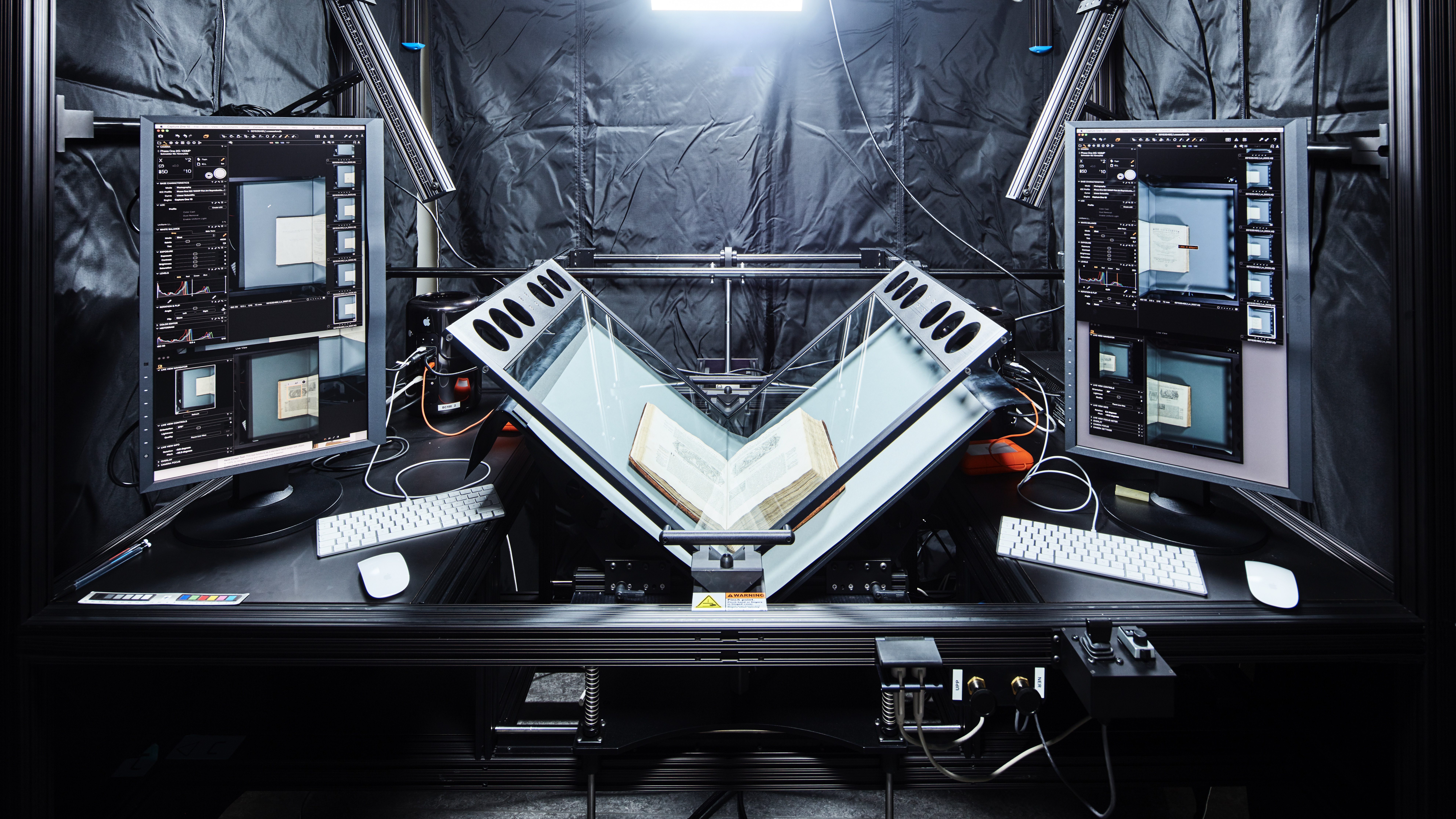 How the National Library of Sweden harnessed AI to unlock centuries of language data
How the National Library of Sweden harnessed AI to unlock centuries of language dataCase Study From Viking-age manuscripts to 1970s broadcasts, AI is helping to digitize more than 18 million items key to Sweden’s history
By Rene Millman
-
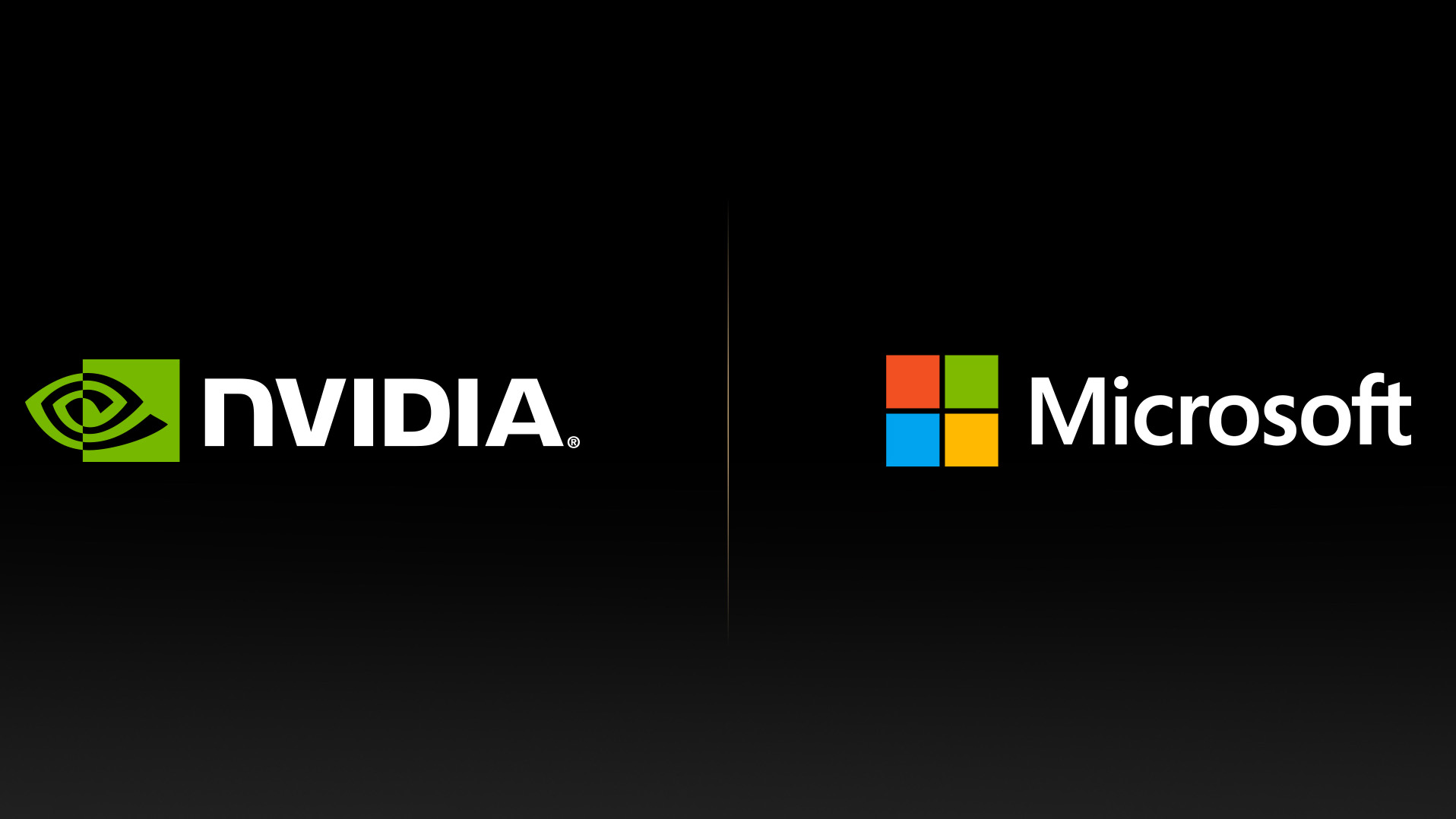 Nvidia and Microsoft team up to build 'most powerful' AI supercomputer
Nvidia and Microsoft team up to build 'most powerful' AI supercomputerNews The firms seek to accelerate the training of AI models using Azure's supercomputer infrastructure and Nvidia GPUs
By Rory Bathgate
-
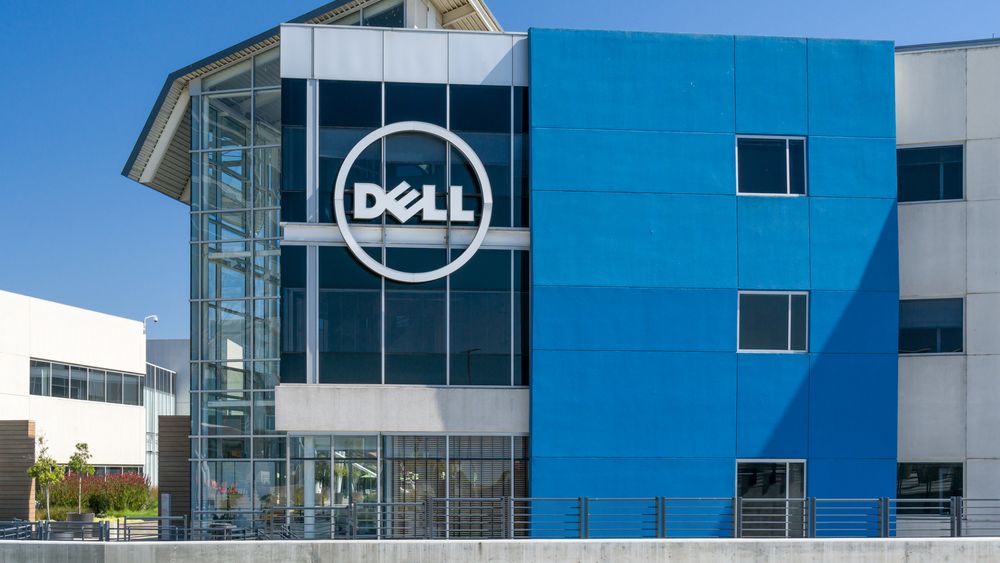 Dell's new PowerEdge servers, quantum solution accelerates HPC for all customers
Dell's new PowerEdge servers, quantum solution accelerates HPC for all customersNews The servers were built in partnership with Nvidia and Intel, and are marketed to all organisations - small and large
By Connor Jones
-
 HPE Cray supercomputer to boost Singapore’s met office weather forecasting
HPE Cray supercomputer to boost Singapore’s met office weather forecastingNews The new system provides twice the speed of its predecessor and has a peak performance of 401.4 teraflops
By Zach Marzouk
-
 Saudi Arabian university taps HPE to build region’s most powerful supercomputer
Saudi Arabian university taps HPE to build region’s most powerful supercomputerNews The supercomputer is set to advance insights in areas including clean combustion, Red Sea ecosystems, climate events, and the Arabian tectonic plate
By Zach Marzouk
-
 HPE's new platform lets customers build machine learning models quickly and at scale
HPE's new platform lets customers build machine learning models quickly and at scaleNews The company is also making it easier for businesses to share information from their AI models with each other, without compromising data
By Zach Marzouk
-
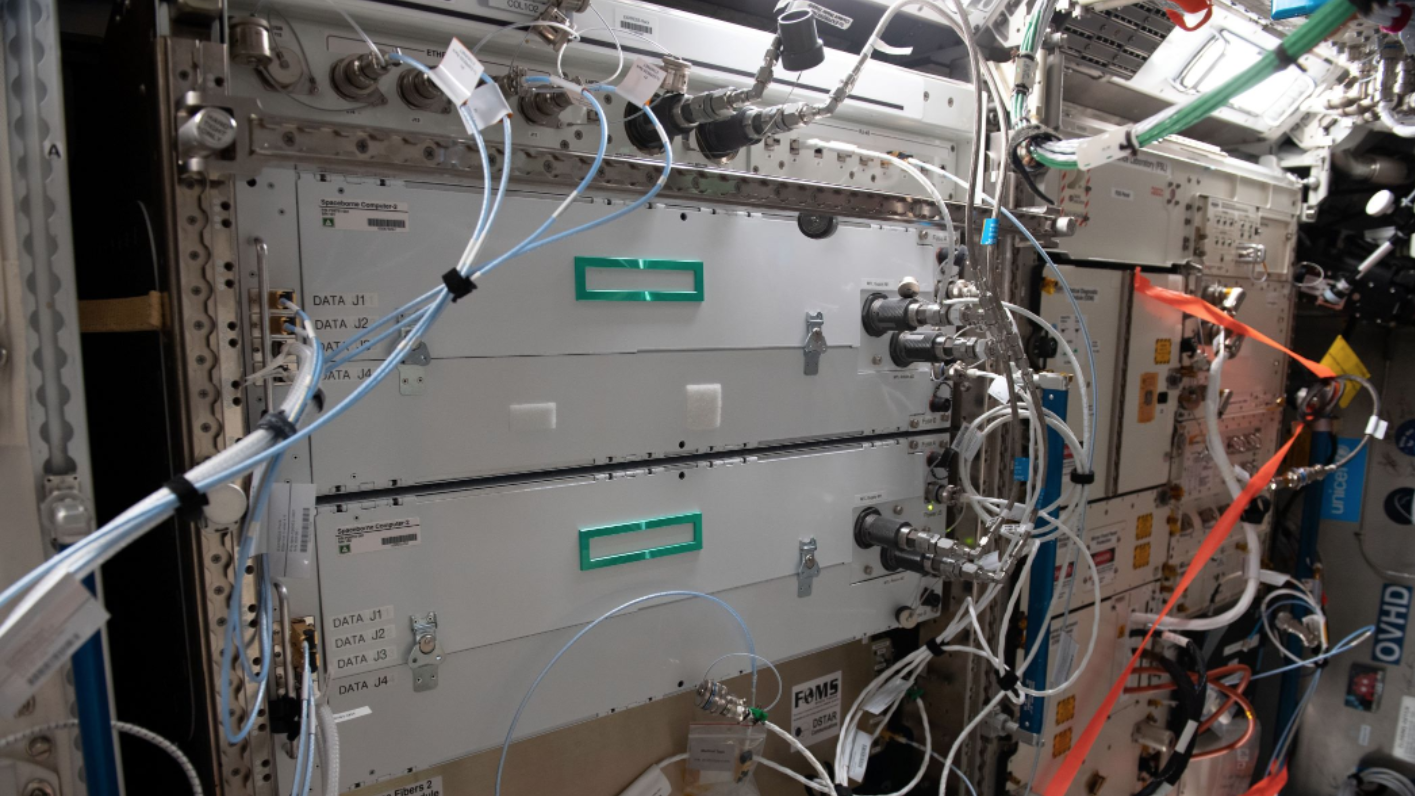 HPE’s supercomputer helps ISS astronauts experiment in space
HPE’s supercomputer helps ISS astronauts experiment in spaceNews Installed in May 2021, HPE claims it’s the first in-space commercial edge computing and AI system to run on the ISS
By Zach Marzouk
-
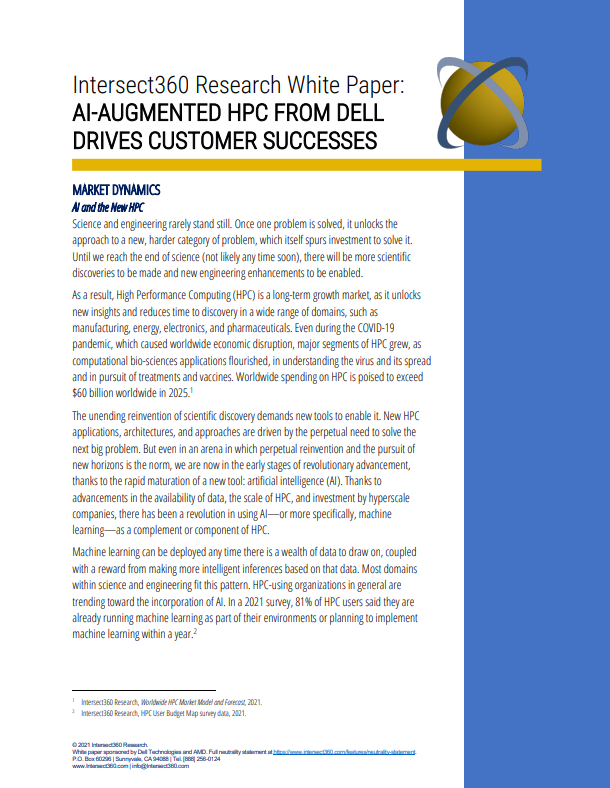 AI-augmented HPC from Dell drives customers successes
AI-augmented HPC from Dell drives customers successesWhitepaper Solve large data problems faster
By ITPro